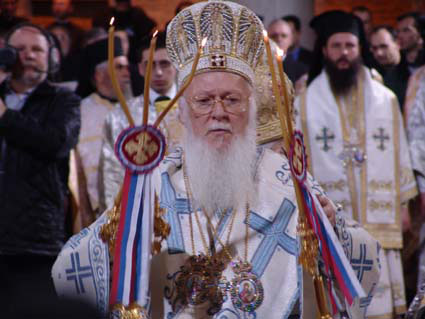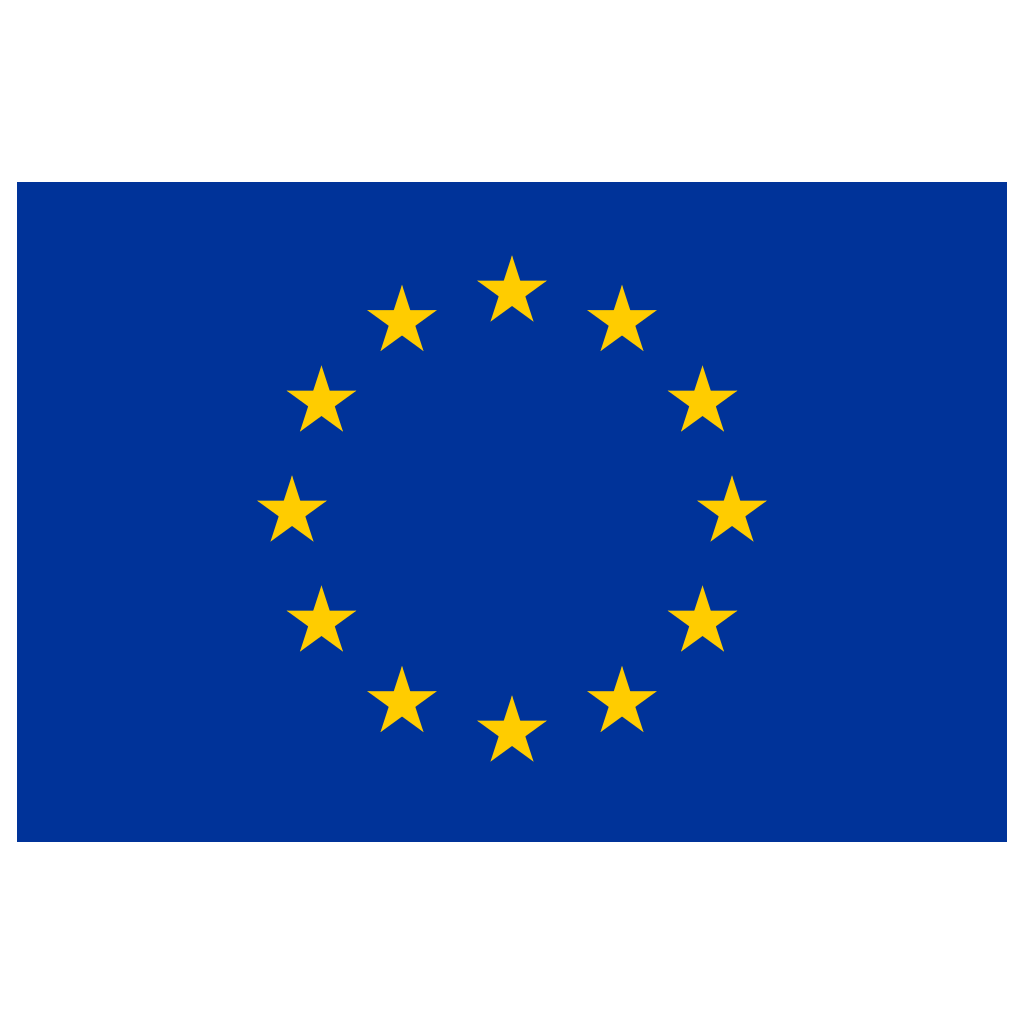Greece has been praised for acting fast to contain the spread of COVID-19, but had politically-connected Orthodox hardliners got their way, the picture might have been very different.
By Yiannis Baboulias
On Friday March 15, a Greek housemaid called Dimitra visited her parish church in central Athens for the Second Chairetismoi, the hymns sung to the Virgin Mary in the Greek Orthodox Church in the run up to Orthodox Easter.
Greece had registered its first confirmed case of COVID-19 on February 27 and its first death from the novel coronavirus on March 12.
At 79 years old, Dimitra feared the virus, which is particularly dangerous for the elderly. Yet she continued to receive Communion – when a single cup and spoon are used to give parishioners sacramental wine and bread – right up until church services were suspended on March 16, as part of a nationwide lockdown to limit the spread of COVID-19. Greeks were deprived the third and fourth stanzas of the Chairetismoi.
“I’m an old woman; all I had was going to the church,” said Dimitra, who declined to give her surname. “But I’m afraid.”
While unfathomable to some, among Orthodox Christians in Greece and elsewhere Dimitra’s ambivalence is unsurprising given the mixed messages that came from church clergy.
The Archbishop of Athens and All of Greece, Ieronymos, had declared early on his willingness to work with the government in exercising strict social-distancing measures to halt a disease that threatened to overwhelm a public health system brought to its knees by years of painful austerity over the past decade to stave off a Greek financial collapse.
Some of those measures went against some of the basic tenets of Orthodox religious practice, and on the ground, in churches up and down the country of almost 11 million people, debate continues to rage. Violations have been widespread.
The swift action of the conservative Greek government has won plaudits, keeping the number of confirmed cases – some 2,463 on April 23, including 127 fatalities – low in comparison with much of the rest of Europe.
But its success has come not thanks, but in spite of, Orthodox hardliners and rogue bishops whose public declarations and practices undercut government efforts to get to grips with the pandemic in the first crucial weeks in March.
Such tensions are playing out across the Orthodox world, including the Balkan states of Serbia, Bulgaria and Montenegro.
Beyond the current crisis, experts say, the conflict poses greater questions about the collision of science and religion, with different branches and figures within the Orthodox Church taking different positions on whether or not to bow to the advice and orders of governments and healthcare authorities.
With health experts warning of the need for repeated periods of social distancing before COVID-19 is brought under control or a vaccine becomes widely available, how the debate plays out inside the church could have significant ramifications.
“If things go badly, some will say: ‘This is what happened, you told us Communion is the problem, we were deprived of it, we had our rights trampled on and it was all for nothing’,” said Georgios N. Filias, a professor of theology at the University of Athens and a member of the Advisory Board of the Archdiocese of Athens.
“The church is sacrificing something and I hope it helps – not to prove the church right, but because society will benefit.”
If COVID-19 is not contained, Filias warned, some in the clergy or laity may interpret it as divine punishment for the restrictions imposed on the Church.
“This is the worst-case scenario,” he said, “to start talking about a punitive God.”
Communion ‘cannot transmit disease’
On February 25, the Greek government, using emergency powers, passed an emergency piece of legislation allowing it, among other things, to order the closure of churches at any given moment in the fight against COVID-19.
On February 28, the day after the country reported its first confirmed case, a bishop called Seraphim, on the island of Kythera between Crete and the mainland, declared: “Neither Holy Mass, nor Holy Communion can ever become agents of transmitting disease, because Holy Grace acts on the faithful, shielding them.”
A week later, on March 6, Bishop Seraphim of Piraeus, one of the country’s biggest parishes, told Alpha Radio that Holy Communion “cannot be a cause of disease and transmit a microbe.”
Amvrosios, the former bishop of Kalavryta and Aigialias, went further, suggesting to parishioners that they spray holy water on their hands and mouths to combat the virus.
In an open letter on March 15 to conservative Prime Minister Kyriakos Mitsotakis, Amvrosios demanded the repeal of the emergency law, urging the premier not to become “a persecutor of Christ”. The virus, he claimed, had been created in a lab in the United States in the 1980s. Seraphim of Kythera also wrote to Mitsotakis, saying the government risked breaching “its mandate”.
Ieronymos, the archbishop, sought to rein them in, and a number of bishops published articles in the Orthodox press calling on their followers to heed the medical advice. On March 13, the day after COVID-19 claimed its first Greek fatality, a survey of 800 people suggested a majority agreed with closing down the churches.
But the appeals issued by the church leadership were undermined by its own statements, critics argued.
A March 11 communiqué from the Holy Synod said it knew from 2,000 years of experience that the Holy Communion is “the antidote to death”.
When, on March 16, the Holy Synod announced it would suspend Mass and Communion but keep churches open for individual prayer, the government responded by ordering their complete closure.
Seraphim of Piraeus was incensed. “First, the government should shut down the mosques and other places of worship but not a single word has been said about them,” he said. The government had in fact repeatedly made clear that the order applied to all places of worship, regardless of religion.
On Kythera, Seraphim was equally indignant, declaring that if Greece’s “ruthless neighbours to the East” – meaning Turkey – were to attack, “our faithful Greek Orthodox people will not take shelter in the Ministries, but in our Holy Temples.”
On March 21, Seraphim held a service at his church on the island. He was arrested and charged. Another priest, in the Athens suburb of Ymittos, was found to be holding mass behind closed doors in the presence of roughly 10 to 20 people. Yet another, on the second-biggest island of Evoia, was arrested for offering Communion to his congregation.
The police did not respond to a request for information on how many members of the church were arrested for violating the order.
Similar incidents were reported across Greece and on March 26 a group of lawyers, backed by church officials, filed a legal challenge seeking to reopen the churches. The challenge was dismissed. A spokesperson for the Archdiocese of Athens declined to comment beyond what the archdiocese had already said on the issue.
Trouble in church

The past few years have been turbulent for the Orthodox Church, its 300 million followers split over the issue of autocephaly for the Ukrainian Orthodox Church that came to a head in 2018 when the Ecumenical Patriarchate, led by Bartholomew I of Constantinople, recognised it as independent from the Moscow Patriarchate.
The Greek Orthodox Church followed Bartholomew I, with Bishop Seraphim of Kythera once again a vocal dissenter.
Now, COVID-19 has caught the Church unprepared.
“COVID-19 posed an immediate challenge to the Church’s status quo,” said Nicholas Denysenko, an Orthodox deacon in the United States and Emil and Elfrieda Jochum Professor and Chair at Valparaiso University in Indiana, “and the Churches were not prepared to respond.”
“Orthodox piety is the primary contributor to the slow response – bishops, priests, and laity were upset that some of their own faithful suggested that you can catch coronavirus when you receive communion,” Denysenko said.
“Church leaders were zealous in defending the Eucharist as the ‘medicine of immortality’, and the energy they invested into defending ritual slowed the process of seeing the entire scope of the perilous threat posed by coronavirus.”
The leadership of the Greek Orthodox Church largely echoed the calls of the Ecumenical Patriarchate for followers to adhere to the medical advice.
The Archdiocese of America, the Archdiocese of Australia and the Metropolis of Korea all suspended Mass, as have many other churches elsewhere. But, said Denysenko, “Τhere are ongoing debates still happening, especially in regards to Holy Communion in Serbia, Ukraine and Russia.”
Filias, the professor of theology at the University of Athens, said that the pandemic would inevitably trigger a broader debate within the Orthodox community between those on the side of Bartholomew I and Ieronymos, in accepting the restrictions imposed by governments and health officials, and the resistance mounted to varying degrees by clergy in countries like Russia, Serbia, Romania and Bulgaria. “If everything goes well, I believe the exchange of opinions will be very mild,” he said. “If not, I don’t know what will happen.”
Serbian church gets lockdown waiver

In Serbia, the conservative government imposed movement restrictions – even curfews – more severe than in Greece, but took a softer line when it came to the powerful Serbian Orthodox Church, SPC.
No formal limitations were placed specifically on the SPC; on March 16, the day after authorities called a state of emergency, the SPC Holy Synod called its followers not to expose themselves or others to danger, but assured them there was no reason to forgo Holy Communion.
When public gatherings were limited to no more than five people, Patriarch Irinej told local churches to act accordingly, but Communion remained an issue. When reports emerged of Orthodox parishioners receiving Communion from the same cup and spoon in the central cathedral in the northern city of Novi Sad in late March, the SPC accused “anti-church and anti-Serbian circles” of waging a “smear campaign”.
To suggest Holy Communion violates the instructions of the state is wrong, the church said in a press release, “since the state does not deal with, nor can it deal with, the content and manner of performing the Holy Liturgy and other church services.”
Matters came to a head on the eve of Orthodox Easter, when the SPC asked that the 24-hour curfew in Serbia be “paused” on Easter Sunday so worshippers could attend church services.
The curfew stayed in place, but after President Aleksandar Vucic told the Serbian public broadcaster that authorities had no intention of arresting bishops or priests, Serbs were seen attending church and taking Communion. No one was arrested.
As of April 23, Serbia had confirmed 7,276 cases of COVID-19 and 139 deaths, including that of SPC Bishop Milutin Knezevic on March 30.
Neighbouring Montenegro, where the government has long had a difficult relationship with the biggest church, the Belgrade-based SPC, authorities took a harder line, ruling that church services could be held only without the participation of parishioners.
Arrests swiftly followed, starting with that of senior SPC priest Momcilo Krivokapic on March 19 in the coastal town of Kotor and most recently the head of the church in Montenegro, Metropolitan Amfilohije, and nine other officials for holding services with parishioners.
For Christians, Holy Communion is the “centre of their belief,” said religious analyst Drasko Djurovic. “You may or may not go to church,” he said, “but Communion is the essence of service.”
The state and the Church
But in Greece, it was not just the Church that had misgivings about the government’s restrictions on religious life. Politicians were uneasy too, some making statements that appeared to echo the words of the rogue bishops.
On March 11, Minister for Development and Investment Adonis Georgiadis, a senior party ally of PM Mitsotakis, speaking on SKAI TV, failed to dispute the claim by some church officials that the coronavirus cannot be passed on via the act of Holy Communion. “I Trust the Church, they have sound judgment,” he said.
Georgiadis, who has previously enjoyed public support from Bishop Seraphim of Piraeus, did not respond to a request for comment.
On March 7, ruling New Democracy party lawmaker Elena Rapti said that she had “received communion and will continue to do so,” while three days later Agriculture Minister Makis Voridis said that while he agreed Greeks should trust the science, “the state cannot tell the Church what to do and say.”
Then even as late on as April 9, the government’s official spokesman, Stelios Petsas appeared to muddy the waters further by telling a news conference that people who had left their homes for the permitted daily exercise walk could “swing by a church” if they wanted to pray.
Dimitra had sacrificed her regular church visits at the most important time in the Orthodox religious calendar, but had been left at deep unease by the mixed messages.
“I’m still confused about what’s right,” she said.
Yiannis Baboulias is a journalist covering European affairs and the far-right. His work is regularly published in Foreign Policy & The London Review of Books, as well as featured by the Atlantic, the Guardian and others.

This article has been produced as part of the Resonant Voices Initiative in the EU, funded by the European Union’s Internal Security Fund – Police.
The content of this story represents the views of the author and is the sole responsibility of BIRN. The European Commission does not accept any responsibility for use that may be made of the information it contains.
